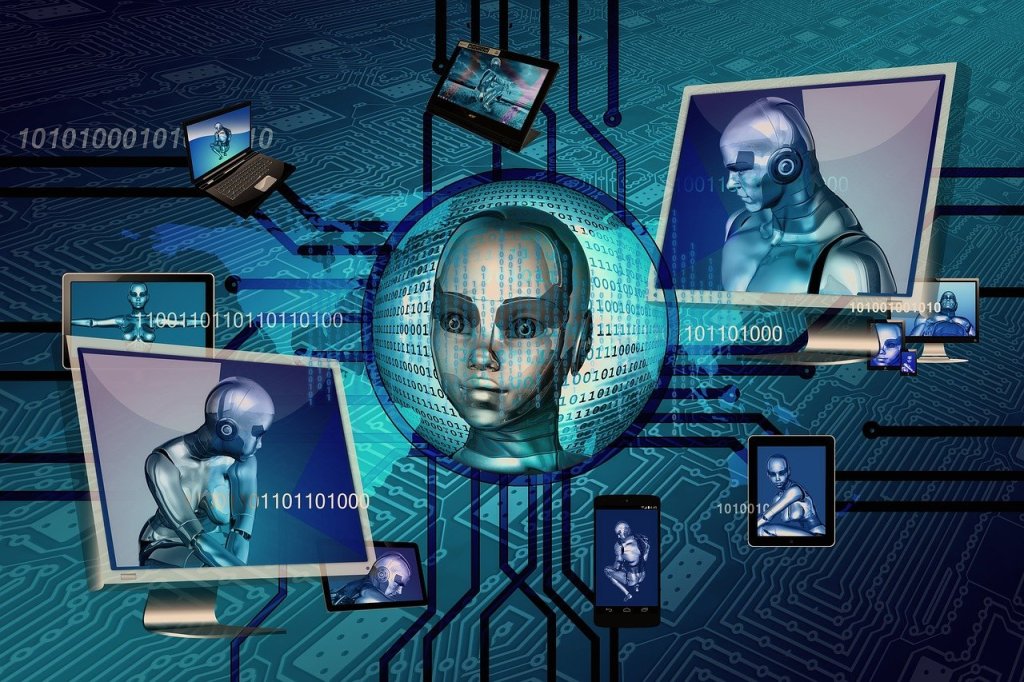Can We Believe The Dead Internet Theory After All?
The Dead Internet Theory has been gaining traction as an online conspiracy theory amongst internet trolls and true believers alike. This theory states that the Internet is primarily made up of bot activity and automatically generated content, leaving human activity to take a backseat. In this article, we’ll explore why this theory has become so popular and why internet trolls and conspiracy theorists believe it.
The Dead Internet Theory is a popular online conspiracy theory that suggests that the Internet isn’t real and is instead run by bots or artificial intelligence. According to this theory, the majority of internet activity is generated by automated systems that mimic human behavior, and that the web isn’t real because it is solely AI-generated.

The theory claims that human activity is increasingly marginalized, and the web is now controlled by bots, algorithms, and AI programs. This idea of a dead internet is a startling thought and has gained traction with internet trolls and conspiracy theorists who believe that the web is losing its authenticity.
The Dead Internet Theory is a relatively new online conspiracy theory, and as such, not many people have heard of it. However, those who do believe in it fall into two main groups: internet trolls and true believers.
Internet trolls, as the name suggests, are individuals who enjoy provoking and antagonizing others online. They see the Dead Internet Theory as a way to further their own goals of causing chaos and confusion. By spreading false information about the web being run by bots or AI, they hope to confuse and upset those who rely on the internet for information and entertainment.
On the other hand, true believers see the Dead Internet Theory as a real threat to the future of the internet. They believe that the web is already overrun by bots and AI-generated content, and that human activity is becoming increasingly marginalized. Some even go so far as to claim that the internet as we know it is dead, and that we are now living in an era of the “zombie internet”.
Regardless of their motives or beliefs, those who subscribe to the Dead Internet Theory represent a small but vocal group of individuals who see the internet as a dark and ominous place, where human creativity and ingenuity are being replaced by automated systems and algorithms. Whether or not their concerns are valid remains to be seen, but it is clear that the debate over the future of the internet is far from over.

There are several reasons why some people believe in the Dead Internet Theory. One of the main reasons is the perception that the internet is run by bots rather than humans. They believe that these bots are responsible for generating most of the online content and activity, leaving very little room for authentic human interaction. Some supporters of the theory also argue that the web is predominantly AI-generated, with algorithms dictating the flow of information and user engagement.
These beliefs are fueled by the proliferation of online bots and automated systems, which are indeed present on the internet and serve various purposes. Social media platforms, for example, use bots to automate certain tasks, such as recommending content or moderating comments. However, it is important to note that bots are not the only entities operating on the internet and do not represent the entire online population.
Additionally, some people may feel disillusioned with the current state of the internet, where clickbait, fake news, and sensationalism dominate the digital landscape. For them, the Dead Internet Theory provides an explanation for this perceived lack of authenticity and meaningful interaction online.
Ultimately, the Dead Internet Theory is a controversial and unproven hypothesis, but it sheds light on some of the concerns and fears that people have about the current state of the internet. It also underscores the need for greater transparency, accountability, and human input in the digital world.
If the Dead Internet Theory were to be true, it would mean that the web as we know it is not being driven by human activity, but by artificially intelligent bots generating content and controlling what we see online. This would have significant implications for our understanding of online communities, communication, and information-sharing.

If bots run the internet, then there is a possibility that the information we receive online may not be trustworthy or reflective of real human perspectives. The implications could also extend to the way that online advertising and commerce are conducted, potentially skewing our consumption patterns and behaviors.
Additionally, it could raise questions about the use of AI in our daily lives and how it impacts our autonomy as individuals. While there is no concrete evidence to support the Dead Internet Theory, it does raise important questions about the role of technology and the importance of human participation in the online world.
It’s a wild theory, but just maybe the internet has been taken over by artificial intelligence and this AI has been spoon feeding us for many years – manipulating our very thoughts and how we perceive things around us.









